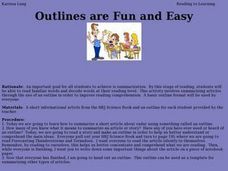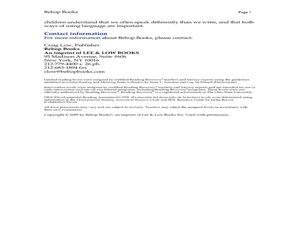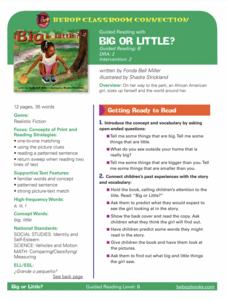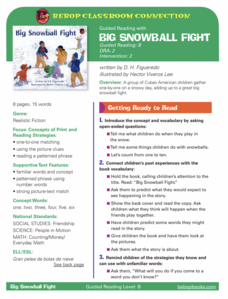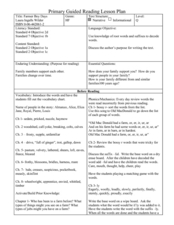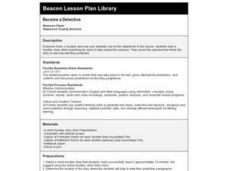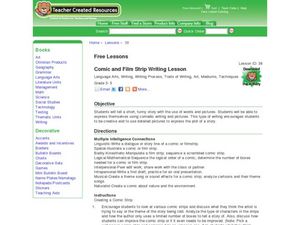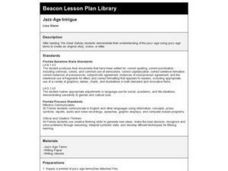Curated OER
Aztec Myths: Writing Editorials
Middle schoolers write an editorial giving an opinion of whether or not Quetzalcoatl has arrived and if so, what the Aztecs should do. They discuss whether or not they believe Quetzalcoatl is a god or a man, and use an Editorial...
Curated OER
Pretend Memoirs
Elementary schoolers explore the concept of a memoir. The teacher tells a story from his/her childhood as an example of what a memoir is; a written account of one's past. The kids are asked to pretend that they are now adults, and are...
Curated OER
Giving Thanks for Food and Farms
Sarah Stewart’s The Gardener and Food from Farms by Nancy Dickmann display the importance of community farms. After reading these short picture books, class members draw connections between farms and the food we eat each day. As a...
The New York Times
Investigating the Heroin and Prescription Opioid Epidemic
How bad is the opioid crisis in America? Has it gotten worse in the last few decades? Why? High schoolers delve into these questions with a thorough and thoughtful lesson from The New York Times on heroin prescription opioids. Starting...
Curated OER
"The Midwife's Apprentice"
Here is an inventive, and educationally rich way to conduct a literature study of the book, The Midwife's Apprentice. After the book has been read, learners get into three groups. One group is assigned the task of being the writers....
Curated OER
Sounding Out CVCE Words
First graders explore vowels and consonants by participating in a flash card activity. In this phonetics lesson, 1st graders discuss the difference between short and long vowels and identify them within a story told to them by their...
Curated OER
Tales From Around the World
Young scholars read stories. In this culture lesson, students read stories from different regions around the world. Young scholars look for each region on the map and listen for interesting cultural details in the story. Students then...
Curated OER
Outlines are Fun and Easy
Students goal is to achieve summarization. They read familiar words and decode words at their reading level. They summarize articles through the use of an outline in order ot improve reading comprehension. Students complete a basic...
Curated OER
Fishing Fun
Students complete pre reading, writing, during reading, and interdisciplinary activities for the book Fishing Fun. In this reading lesson plan, students complete journal entries, go over vocabulary, answer short answer questions, have...
Curated OER
Big or Little
Young scholars complete pre reading, writing, during reading, and interdisciplinary activities for the book Big or Little, . In this reading lesson plan, students complete journal entries, go over vocabulary, answer short answer...
Curated OER
Big Snowball Fight
Students complete pre reading, writing, during reading, and interdisciplinary activities for the book Big Snowball Fight. In this reading lesson plan, students complete journal entries, answer short answer questions, have discussions,...
Curated OER
Conflict in"the Interlopers"
Learners read "the Interlopers" and define the four conflicts in the story. In this conflict lesson, students write an original story about three of the four conflicts in the book.
Curated OER
Just Plain Fancy
Learners complete pre reading, writing, during reading, and interdisciplinary activities for the book Just Plain Fancy. In this reading lesson plan, students complete journal entries, go over vocabulary, answer short answer questions,...
Curated OER
Farmer Boy Days
Students complete pre reading, writing, during reading, and interdisciplinary activities for the book Farmer Boy Days. For this reading lesson plan, students complete journal entries, go over vocabulary, answer short answer questions,...
Curated OER
Life's Greatest Pleasures
Students explore the meaning of what makes life pleasurable. In this social awareness lesson plan, students read an article that states things that people might enjoy doing for pleasure, then complete numerous activities to reinforce...
Curated OER
The Froggy Page
Students investigate the cycle of life by observing tadpoles. In this biology lesson, students utilize the Internet to read stories, observe pictures, and listen to sounds of frogs. Students create a poster board collage using frog...
Curated OER
Become a Detective
Young scholars participate in a simulation where they act as detectives to locate a missing item using questioning and prediction techniques. Then they read a portion of a story, write a prediciton paragraph, and then finish reading the...
Curated OER
Comic and Film Strip Writing
Students write a funny story and illustrate it in a comic strip. In this comic strip lesson, students study comic strips and determine the plot of each story. Students then write a short story and illustrate it using a comic strip...
Curated OER
Fiction vs. Nonfiction
Students find the difference between fiction and nonfiction. For this fiction/nonfiction lesson, 1st graders read the story Johnny Appleseed and discuss what makes this a nonfiction story. They listen to a fiction story and see what...
Curated OER
A Fish Tale Fable
Students identify the moral in a fable. In this folktale lesson, students read an included book, Fish Tale, and identify the message in the book. Students discuss what kind of lessons can be learned from reading this fable.
Curated OER
Jazz-Age Intrigue
Eleventh graders read The Great Gatsby and explain the jazz age. They use jazz age terms to create their own short story, scene, or letter.
Curated OER
There's a Monster in My Closet!
Learners create their own monsters that exist in their imaginary closets and decorate their environment. They then write a short story to describe their illustration using a prompt.
Curated OER
Fable of the Fainting Goat
Young scholars read a story. In this telling time lesson, students complete a worksheet where they must practice their knowledge of telling time. Young scholars read a fable and answer time questions as they read.
Curated OER
Comparison and Contrast - D. H. Lawrence
Read The Horse Dealer's Daughter and The Rocking Horse Winner by D. H. Lawrence, then write an essay comparing and contrasting the two stories. Learners choose some aspect to write about, such as themes, characters, setting, or plot.









